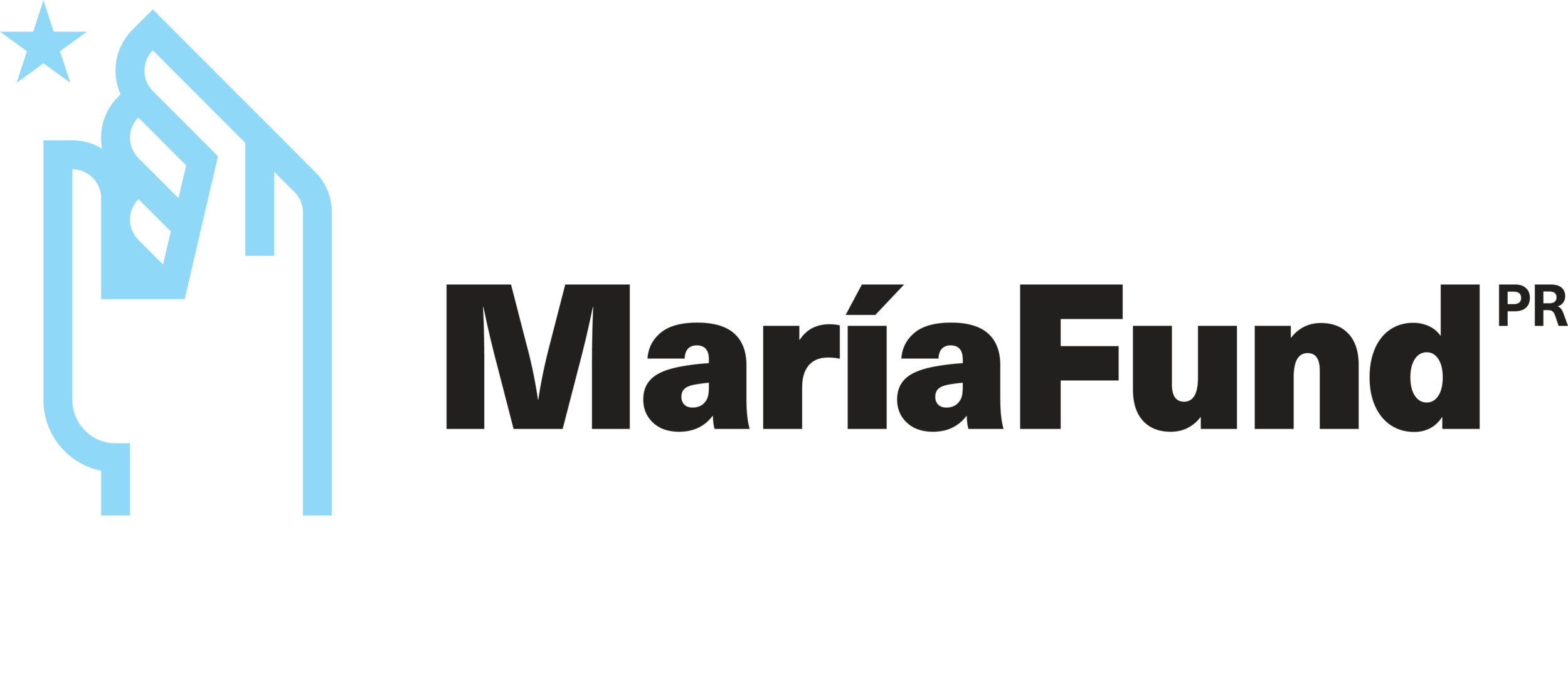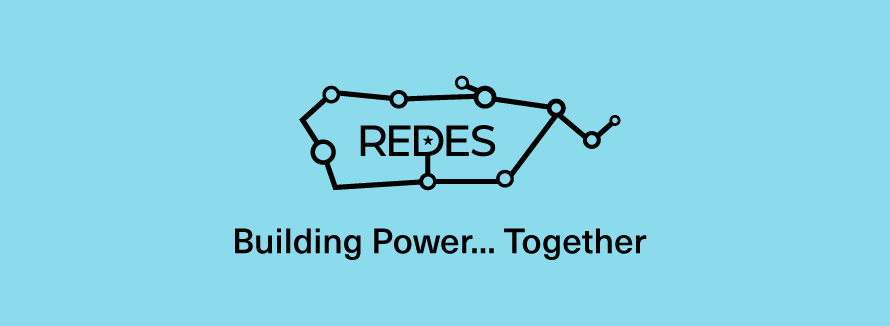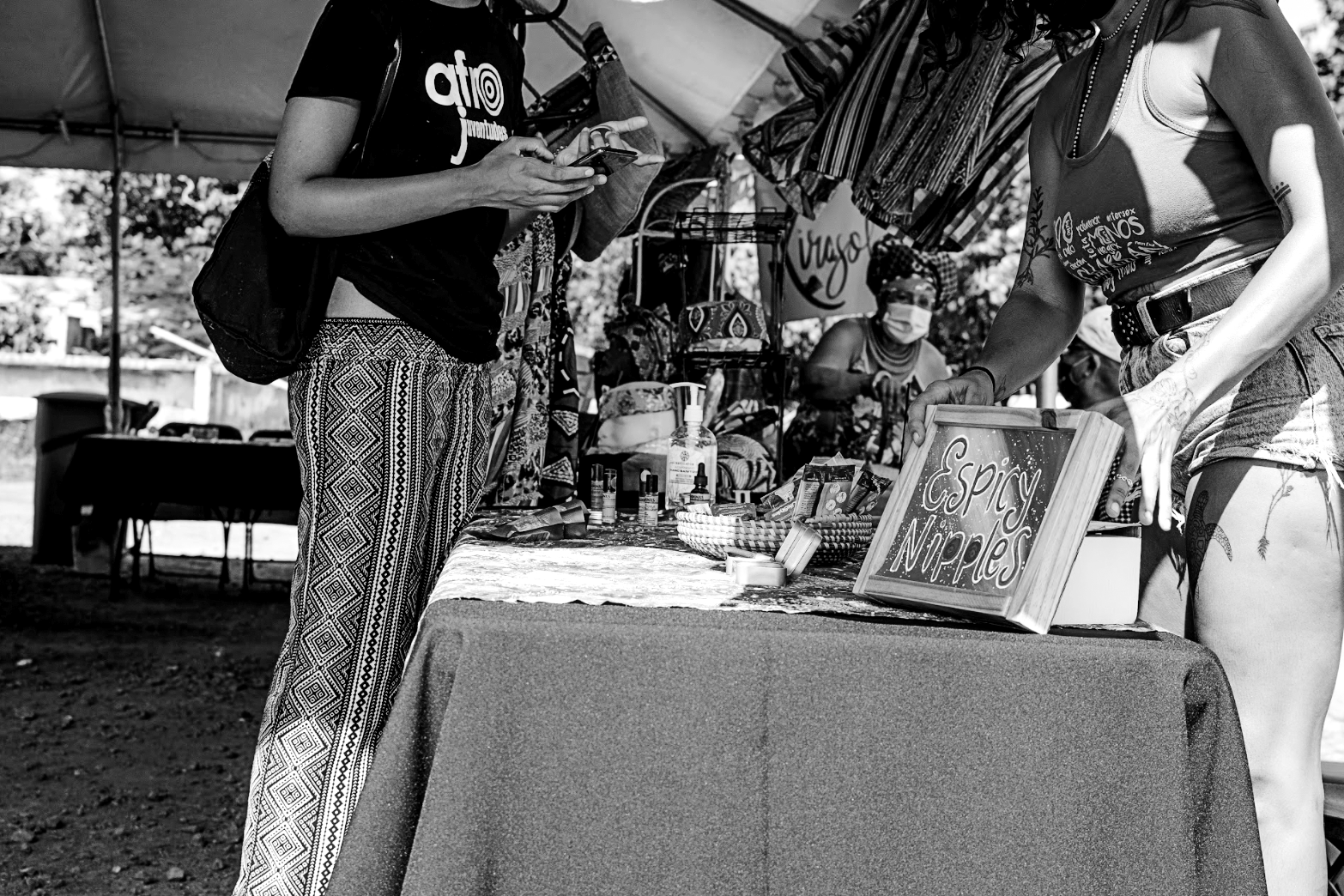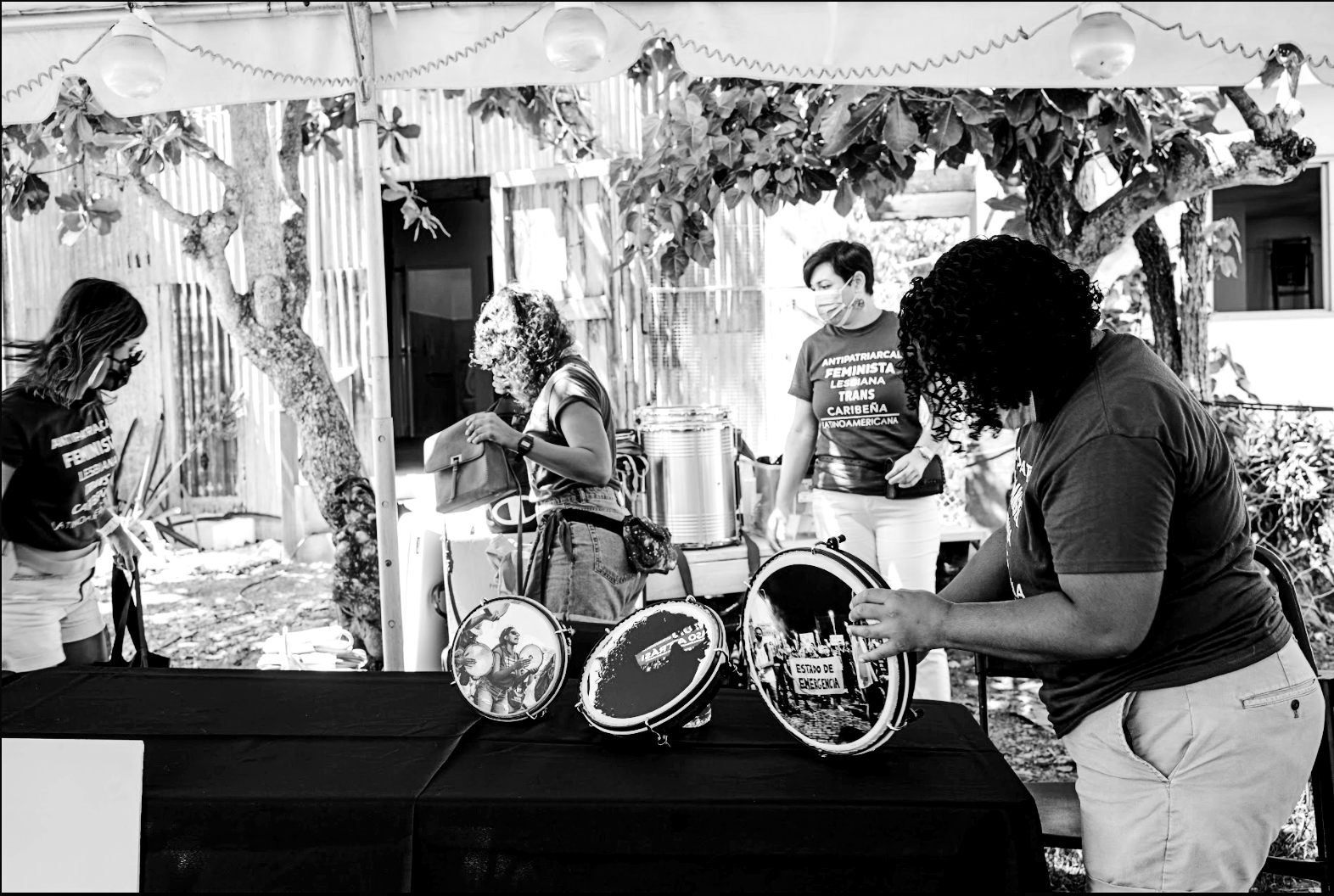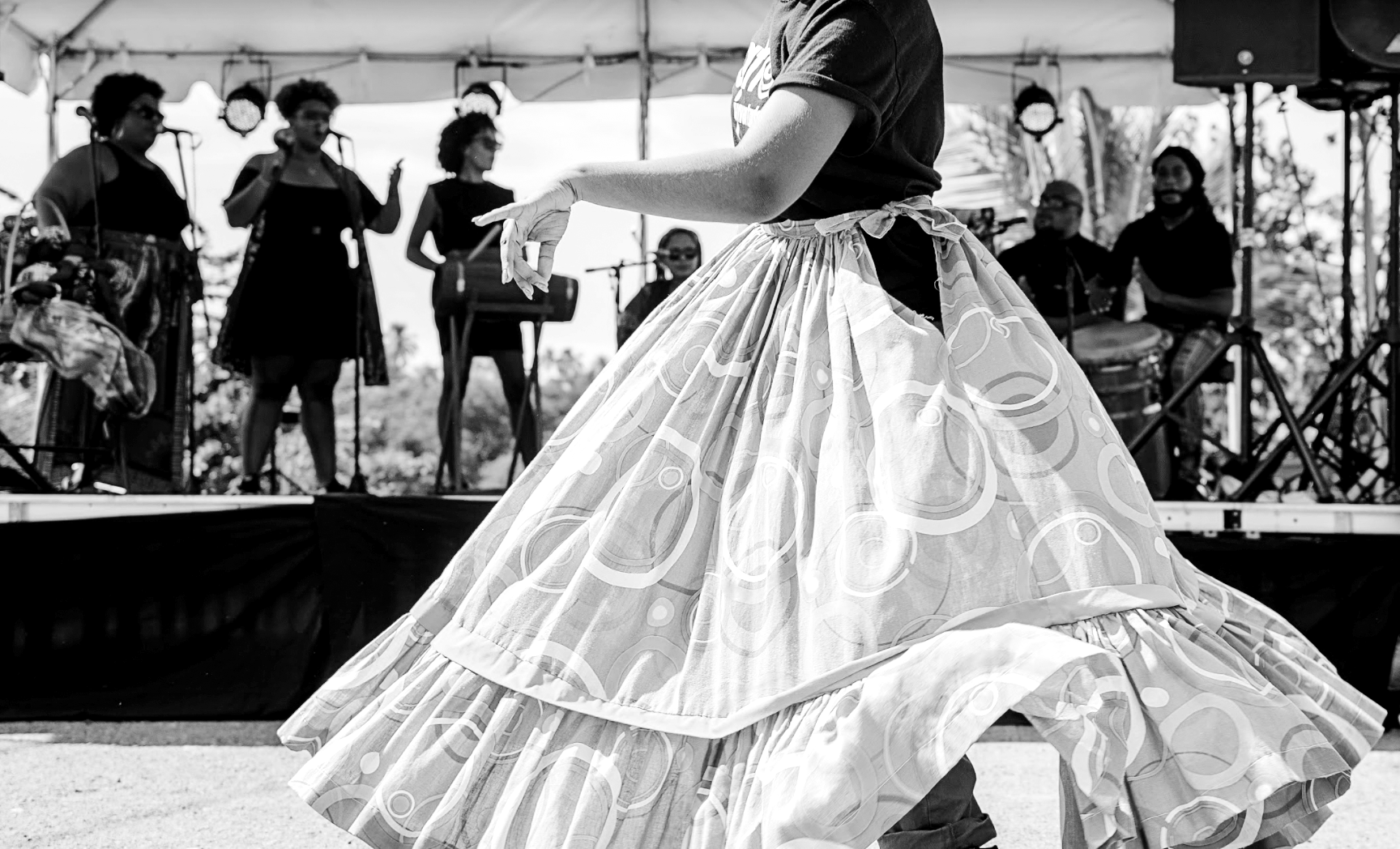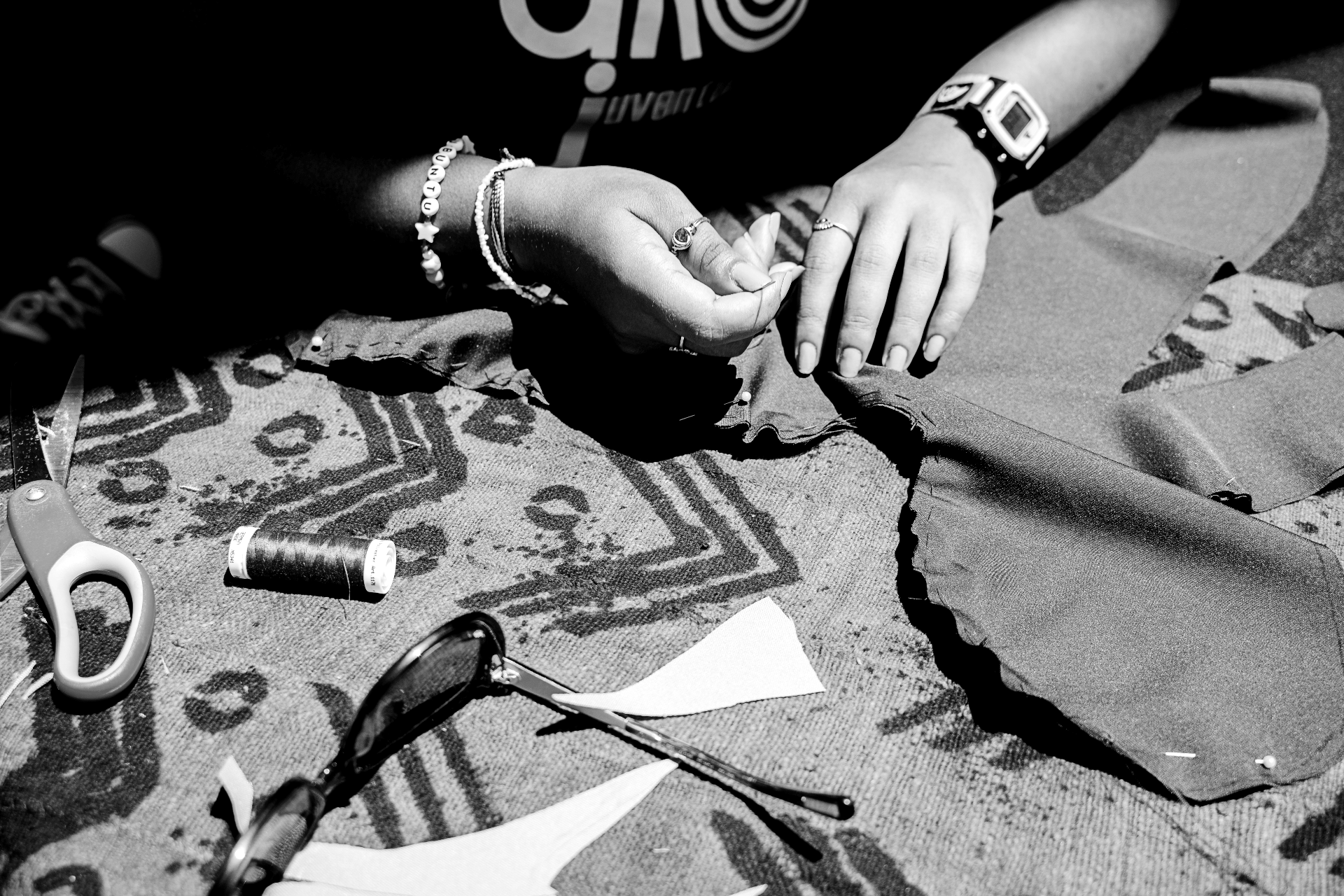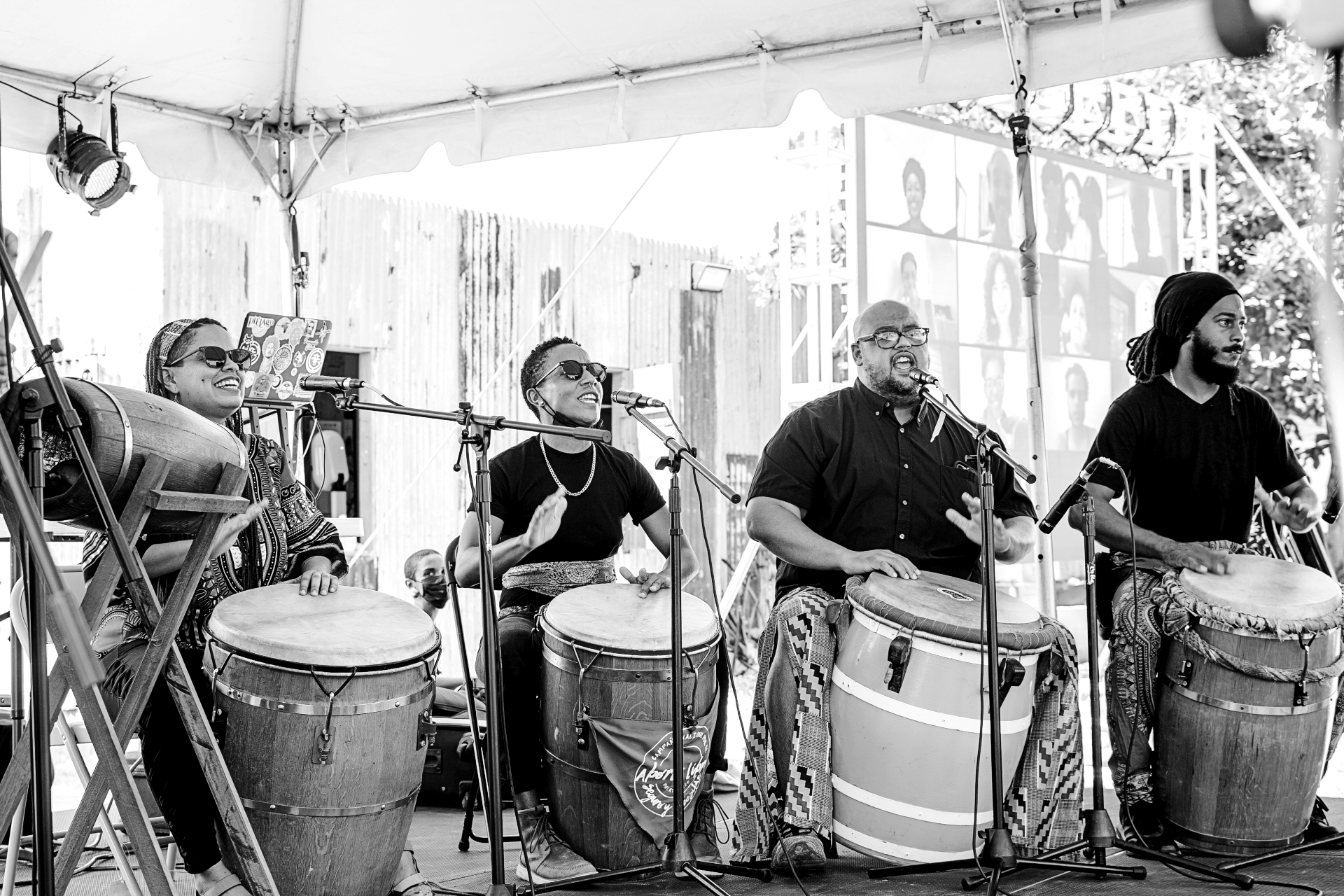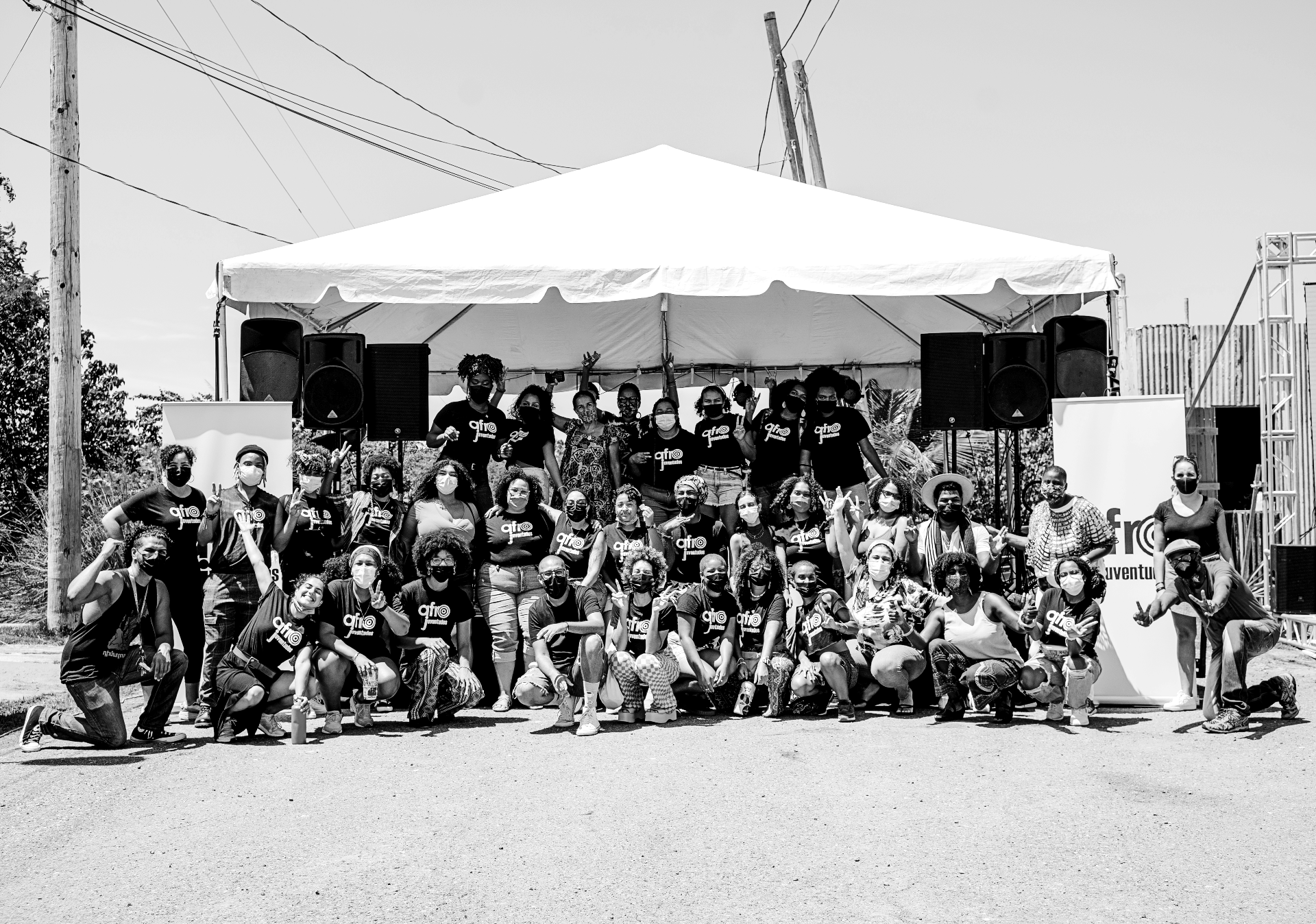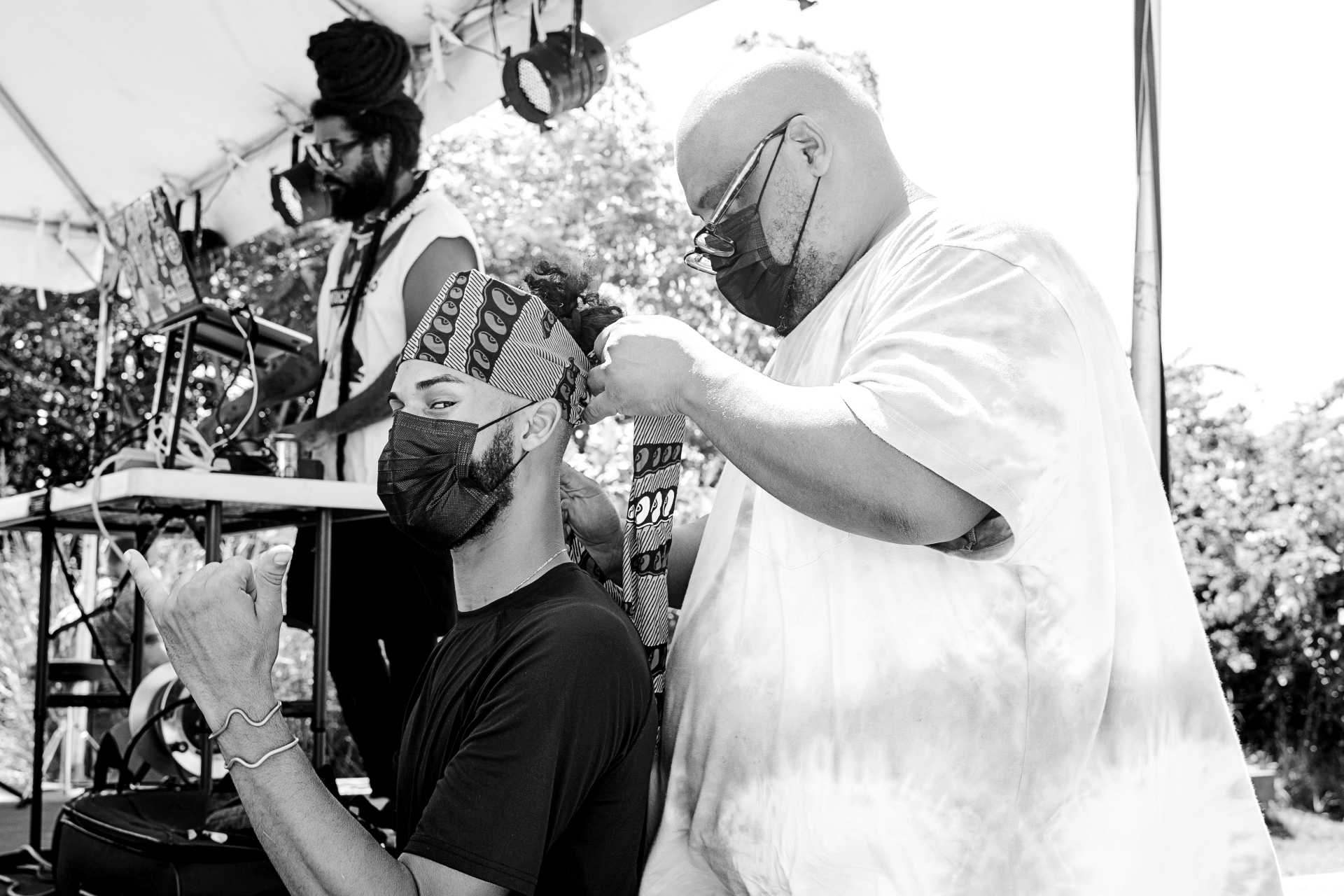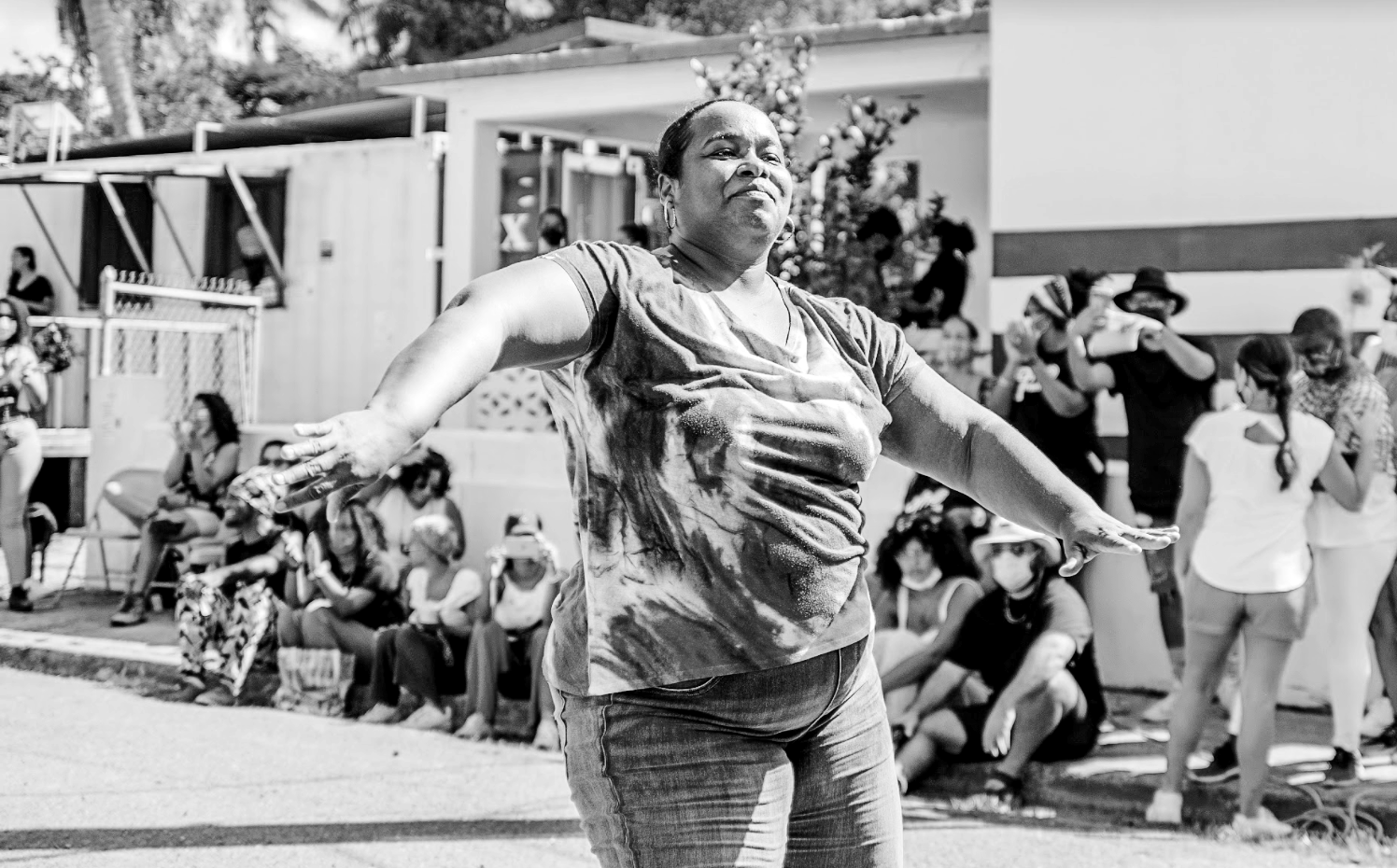REDES: Racial Justice: The Path to Collective Liberation
The power of the anti-racist and Afro-feminist work of our sister organizations.
19 de octubre de 2021
Understanding white supremacy as the foundation of colonialism, the root cause of several socioeconomic inequalities of many of our structures and institutions, including local government, has been the analysis of partner organizations of the María Fund that have worked for decades toward social justice with an anti-racist and Afro-feminist framework. Puerto Ricans, Dominicans, and folks who are evidently Black experience discrimination, as well as institutional and systemic violence, at school, at their jobs, at the hands of the police and other agencies, and in other spaces.
In Puerto Rico, mainstream ideology invisibilizes or denies our Blackness and, consequently, denies racism. This does not only show up in individual experiences, but it has also been part of an orchestrated racial agenda.
Revista étnica and Colectivo Ilé have played crucial roles in the fight for equity and Racial Justice.
Revista étnica
Revista étnica is a social and multimedia movement that seeks to visibilize, amplify voices, and positively represent Afro-Latin communities. Revista étnica uses its multimedia platforms to provide visibility mainly to Black and Afro-descendant women, but also to men, Afro-Latin folks, and the LGTBQIA+ communities, as well as other groups commonly excluded due to racial and gender discrimination.
Revista étnica impacted a total of 32,000 people through its social media and digital magazine. The circulation of each edition of the printed magazine amounts to 1,500 copies. The magazine and social media reach all of Puerto Rico, the archipelago, and internationally. It reaches mainly Black and Afro-descendent communities. As part of its main focus, it has prioritized issues that impact Black and Afro-descendent women in Puerto Rico. From Revista étnica, processes of strategic communications were supported for the ecosystem to develop and implement Colectivo Ilé’s De Cara al Censo 2020 Campaign. Additionally, they offered workshops on organizing, communication strategies, creative writing, artivism, and healing with other organizations and groups, such as Afrocaribeñas and Taller Salud’s Women’s Circle. The organization acted as spokesperson for Racial Justice on the census issue and the uprisings for Racial Justice in the world, following George Floyd’s killing. Their platforms became a space of anti-racist education.
Colectivo Ilé
Colectivo Ilé works to develop the capacity of oppressed folks —impoverished, racialized as inferior, ignored, non-binary, gay, lesbian, with disabilities, and otherwise marginalized— to identify their own needs, priorities, and solutions. The lack of power in our communities, along with a bombardment of services and charity, nevertheless convinces us of the contrary and pretends to make accomplices of us for our own dispossession, displacement, and oppression. We are susceptible to awareness and capable of overcoming the intergenerational burdens of that oppression. We have taken on the task of implementing processes of reflection and strategic planning that advance wellbeing and holistic development (economic, social, cultural, and political), so that they are participatory and guarantee a wholesome existence and quality of life.
Colectivo Ilé’s purpose is to educate, organize, and research to strengthen anti-racist and decolonizing work to generate changes in community, academic, spiritual, psycho-social, cultural, economic, and political contexts, in and outside of Puerto Rico. Colectivo Ilé and Revista étnica, in collaboration with the María Fund, launched a school for anti-racist political education for young folks in January 2021.
As part of this process, 50 youth met online every Saturday from January to September 2021 to discuss and understand different forms of racism and how to identify it to face it; to gain communications, storytelling, and artivism skills for Racial Justice movements; and to develop a healthy racial identity to strengthen and affirm their own identities. Additionally, media and educational campaigns were launched, such as De Cara al Censo 2020, “Don’t Let Them Erase You from the Census”, and others that are cooking in our pots, seeking to visibilize the issue of racism, manifest the will to change, show that it is possible to interrupt the impositions of public policies that are unresponsive to cultural reality, affirming the power of ancestral legacy, and dealing with the distancing and denial of Blackness, with internalized racism, among other objectives relevant to their political capacity.
¡The fight for equity and justice continues!
Colectivo Ilé and Revista étnica, in collaboration with the María Fund, launched an anti-racist school. As part of the process, 50 young folks, between 16 and 30 years old, met online every Saturday, from January to September 2021, to discuss and understand different forms of racism in our social and cultural context, how to identify it, and the strategies to face it in daily life. Additionally, they had the opportunity to gain communication, storytelling, and artivism skills for Racial Justice movements as well as to develop a healthy racial identity and their leadership to use their voices and model anti-racist perspectives.
“AfroJuventudes allowed us to affirm the power of Black youth in the entire archipelago. It was wonderful to see them in their essence, to learn with them, to present to them processes of anti-racist education, as well as to provide them with resources that could help them understand the processes of communication and power to generate and create new narratives that can dismantle racism and discrimination. It was a huge honor to participate in this process. We hope to continue developing different skills where young folks can continue presenting positive representations of Blackness from Puerto Rico and learning from other organizations and processes of Racial Justice in the country,” said Gloriann Sacha Antonetty Lebrón, Communicator and Revista étnica Founder.
In the workshops and experiences that the young folks had, they worked on topics of: racial schemes from personal, institutional, and cultural perspectives relating to other intersectionalities and other issues of oppression; communications focused on Racial Justice; Afro-Puerto Rican aesthetics; journalistic theater; storytelling; campaign development; message development; and anti-racist radio; among others.
The young leaders’ leadership was also centralized when some of them were part of bringing two bills to the Legislature: House Bill 960 against discrimination on the basis of hairstyles and the measure that went to the House about the part of Highway 187 that passes through Loíza. The first one seeks to pass the “Anti-Discrimination on the Basis of Hairstyles Act”, establishing policy by the Puerto Rican government on racial non-discrimination on the basis of protective haistyles and hair textures that are commonly associated with an ethnic identity or national origin in particular. The second one went to the House, seeking to name Loíza’s main street Adolfina Villanueva. On the morning of February 6 of 1980, Adolfina Villanueva Osorio, a 34-year-old woman and mother of six, was shot and killed by the police while they tried to evict her from her house. Naming the street in her name is an attempt to visibilize resistance and collective memory. For more information on this story, visit: In Loiza the Fight for Property Rights Has a Long History.
Through the nine months of the anti-racist school, young folks nurtured relationships and maintained a safe space based on their power, tenderness, and voices to co-create and resignify narratives, multimedia projects, healing spaces, and collective action.
In celebration of Afro-descendance’s power and pride, the youth who participated in the program did an event called AfroJuventudes Fest on Saturday, September 25, 2021, at the historical El Alcón in Loíza.
The activity counted with the presence of celebrities and artists, such as Afrocustics, Malacara, Julio del Hoyo, Messy Deprat, Prieta Caribe, Katia, Ubi, and Elektrik Sistah, evidently Black artists who were chosen by an AfroJuventudes Youth Committee. The event was open to the general public for the enjoyment of handcrafts, healing spaces and workshops, food, and more.
“We’re pleased to have arrived at the end of this journey with the first youth cohort from the entire archipelago and, to celebrate it, created AfroJuventudes Fest, not only to uplift the commitment and revisit all that manifested this year, but also to celebrate Afro-descendance from the perspective of young folks who are visibly Black and/or Afro-descendant,” said Kimberly Figueroa Calderón, AfroJuventudes Coordinator and Colecitvo Ilé Community Organizer.
LEARN MORE ABOUT OUR SERIES OF STORIES
REDES: BUILDING POWER TOGETHER
At María Fund, we are clear that we must undo centuries of scarcity, control, violence, and trauma caused by colonialism that have displaced us generation after generation. In the last two decades, in particular, we have faced consecutive tides of political, social, and economic displacement that seek to strip us of even more power, self-determination, and justice. The public debt, PROMESA, the Fiscal Control Board, and Hurricane María, marked a before and after for many. Austerity in the form of layoffs, budget cuts, and privatizations has forced thousands of people to leave and the precariousness of those who remain. Gender-based violence is a growing pandemic that disproportionately affects women and LGBTQIAPNB+ folks.
Four years ago, a climate emergency accelerated and revealed this political crisis more quickly. We know that the disaster is still political... but we believe that it is possible to build together a future of a dignified life for all.
We support REDES (networks) and connect to co-build, heal, and move towards a Puerto Rico where we are able to have interdependent relationships with one other and with the rest of the world.
REDES is a series of stories about the victories, achievements, and impact of the organizations allied to María Fund during 2021 and the past years. Our goal is to be more visible, to be bigger, to be stronger. Our goal is that by seeing how our stories connect, we can also see how we win more when we come together and fly together. Our goal is for our stories to be one: a story of national and collective liberation.
